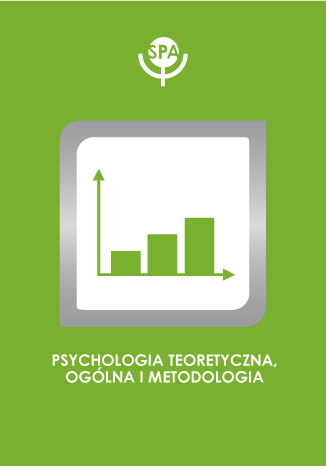Array
(
[id] => 563
[date] => 2019-04-14
[doi] => 10.14691/CPPJ.25.2.159
[title] => Trzecioosobowe wizualizacje własnej przeszłości: o uwydatnianiu pozytywnych wspomnień z pamięci autobiograficznej
[title_en] => THIRD-PERSON MNEMONIC VISUALIZATIONS: THE AMPLIFICATION OF SELF-BOOSTING AUTOBIOGRAPHICAL MEMORIES
[authors] => Marta Marchlewska,Maja Czarnecka, Zuzanna Molenda, Magdalena Krysztofiak, Agnieszka Glica, Dorota Kobylińska
[abstract] => The aim of the present study was to examine the role of visual memory perspective during a retrieval of self-boosting memories. Memories can be retrieved either from a first-person, or a third-person visual perspective. Adopting a first-person perspective allows for visualizing past events in a similar manner as they were originally encoded. Adopting a third-person perspective during memory recall, allows for seeing oneself from the outside. Third-person visual perspective is often considered to be a mnemonic tool, which is associated with memory distortion due to individual’s specific motivations. According to Sutin and Robins (2008), adopting a third-person visual perspective should contribute to enhancing the positive emotions, experienced during the retrieval of self-boosting memories. In an experimental study, participants (n=200) were asked to recall a self-boosting positive memories (associated with pride) or positive but not self-boosting memories (associated with amusement). Results showed that those recalling self-boosting memories more frequently adopted the third-person visual perspective, compared with participants who were recalling positive, but not self-boosting memories. Adopting third-person (vs. first-person) perspective was associated with higher satisfaction related to the recalled situation. These results shed a new light on the role of visual memory perspectives in self-enhancement processes.
[abstract_en] => The aim of the present study was to examine the role of visual memory perspective during a retrieval of self-boosting memories. Memories can be retrieved either from a first-person, or a third-person visual perspective. Adopting a first-person perspective allows for visualizing past events in a similar manner as they were originally encoded. Adopting a third-person perspective during memory recall, allows for seeing oneself from the outside. Third-person visual perspective is often considered to be a mnemonic tool, which is associated with memory distortion due to individual’s specific motivations. According to Sutin and Robins (2008), adopting a third-person visual perspective should contribute to enhancing the positive emotions, experienced during the retrieval of self-boosting memories. In an experimental study, participants (n=200) were asked to recall a self-boosting positive memories (associated with pride) or positive but not self-boosting memories (associated with amusement). Results showed that those recalling self-boosting memories more frequently adopted the third-person visual perspective, compared with participants who were recalling positive, but not self-boosting memories. Adopting third-person (vs. first-person) perspective was associated with higher satisfaction related to the recalled situation. These results shed a new light on the role of visual memory perspectives in self-enhancement processes.
[keywords] => autobiographical memory, visual perspective, self-boosting memories
[keywords_en] => autobiographical memory, visual perspective, self-boosting memories
[file_path] => /files/articles/2019-25-trzecioosobowe-wizualizacje-wasnej-przeszoci_-o-uwydatnianiu-pozytywnych-wspomnie-z-pamici-autobiograficznej.pdf
[okladka] => psychologia_teoretyczna_ogolna_i_metodologia.jpg
[rocznik] => Rocznik: 2019 Tom: 25 Numer: 2
[strony] => 159-164
)










 Pobierz pełny tekst
Pobierz pełny tekst



